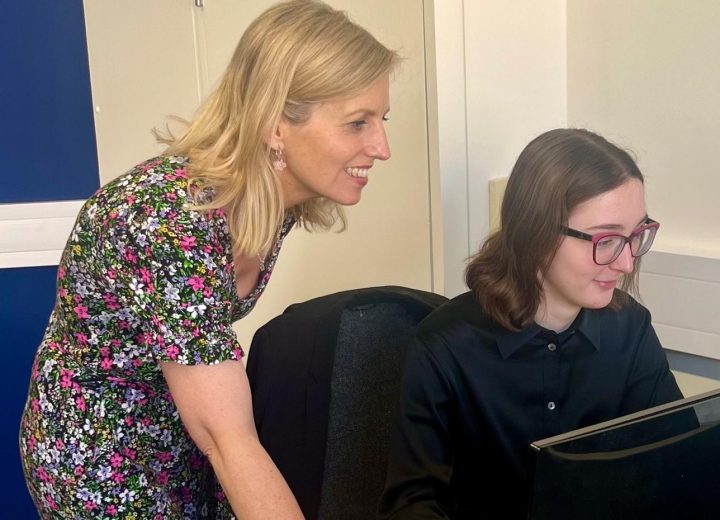How should businesses communicate their green credentials?
Reuseabox Marketing Manager Rachael Hunt spoke at our quarterly Caffeine Club about greenwashing and greenhushing. Journalism graduate Rhianna Stephenson was with us on work experience at the time, and she was inspired to dive into the subject in our latest blog.
As consumers become increasingly interested in the sustainability of their products and services, communicating the environmental impact of your business is becoming more of a priority.
You want to share how you’re benefiting the planet, and that’s a fantastic opportunity — but it’s also a challenge. How can you let people know what you’re doing without either greenwashing or greenhushing?
The main goal of marketing for good is to produce honest marketing about real changes. Greenwashing is when brands overemphasise their positive impact, while when a business greenhushes, it means they’re underplaying their work to avoid a backlash. So how can businesses discuss their environmental impact without making misleading claims?
Greenwashing
There are some activities that can count as greenwashing. Businesses may use vague buzzwords like ‘eco-friendly’ to describe their products without having the evidence to back these words up. Brands might create environmental labels that imply they are accredited by a third party when they’re not.
Even emphasising real achievements can be greenwashing if those achievements don’t acknowledge the full story. For example, if you produce fast fashion and you talk about using recycled materials while ignoring textile waste or carbon emissions, this can be classed as greenwashing. These activities can also have negative consequences for your business. Greenwashing damages public trust in businesses and can be noticed by regulators or watchdogs.
On the other hand, there’s a good chance you have a lot of positive actions to talk about. But are you sharing them?
Greenhushing
One concern that leads to greenhushing is that if you put your head above the parapet and talk about what your business is doing to benefit the environment, people will criticise you for what you are not doing. That’s understandable, but greenhushing also has its drawbacks. Your achievements and progress are worth sharing and can inspire members of your audience.
Small businesses are often guilty of greenhushing, as they do always have a lot of resources to invest in reducing their carbon footprint. However, they can still build brand loyalty and trust amongst their customers by being honest and transparent and sharing ‘work in progress’ stories rather than focusing on perfect results.
Marketing for good
So, how can a business strike the right balance? The answer is by sharing the work you do in an honest and positive way.
Marketing for good involves paying attention to how your business is becoming more sustainable. You can raise awareness of achievable goals that can be reached in a set time. Talk about what you’re currently doing, what you’ve done and what you are going to do. Marketing provable actions, like reducing plastic packaging, is a good idea, especially when they’re supported with data or third-party accreditation.
You can also improve the carbon emissions of your website. By using sites like websitecarbon.com, you can rate the emissions your website creates and learn how to make it more environmentally friendly.
Opening up a conversation with the public about how you can improve is a good way to earn public trust. You can produce marketing about charitable donations, progress towards net zero, recycled materials, solar panels and more. Some actions may improve your finances in the long run, like solar panels. Other choices, like donating 1% of your revenue to charity, are expenditures – but they’re beneficial to the community and consumers will often be grateful for it.
Marketing for good without greenwashing or greenhushing involves being eager to talk about authentic sustainability. Businesses need to tell real stories about real actions. So if you’re interested in marketing for good, be transparent, acknowledge your work in progress and aim to make a real positive impact. RS










